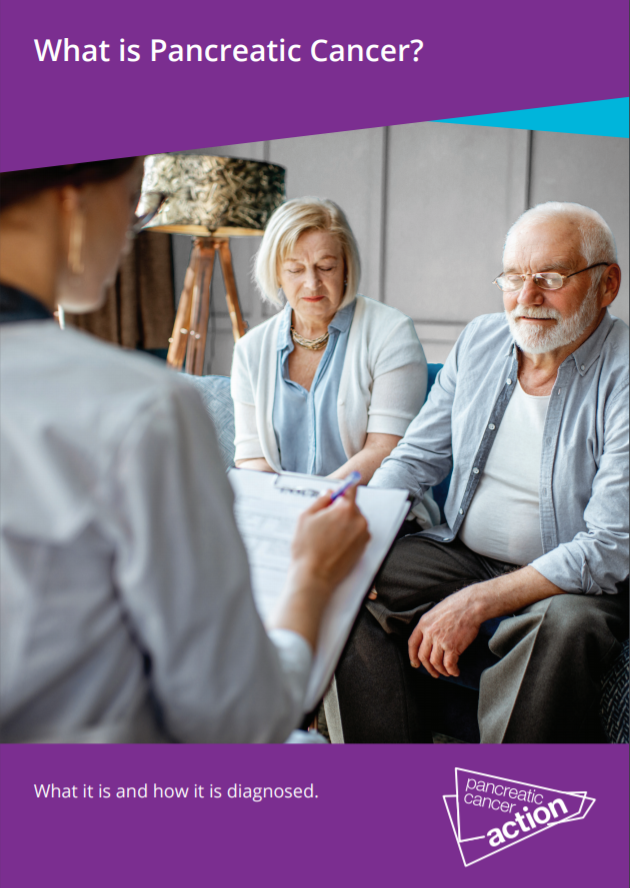What is a dietician?
A dietitian is an expert in nutrition. Dietitians are the only qualified health professionals that assess, diagnose and treat diet and nutrition problems.
Registered dietitians are regulated by the HCPC (Health Care Professionals Council). They will be able to give you advice on how to cope with nutrition problems or eating difficulties. This advice may include the use of pancreatic enzymes and nutritional supplements.
Dietitians are a key member of the Multi-Disciplinary Team (MDT) in hospitals that treat patients with pancreatic cancer. They also work in the community. If you are not currently seeing a dietitian and think you may benefit from seeing one, ask your medical team or your GP to refer you.
Dietitian or nutritionist?
Dietitians and nutritionists may seem like similar roles, but it is important that you seek information and advice from a dietitian. These are the only health care professionals who are able to give dietary advice to people suffering from an acute illness such as pancreatic cancer.
Dietitians can recommend supplements and other medications to manage your condition. A nutritionist generally works in nonclinical settings, outside of hospitals or GP Practices to advise people, who are medically well, about what makes a healthy diet. While they may be able to offer you some good advice, they are not in the same position as a dietitian, who is able to offer ways of maintaining or gaining weight specific to your pancreatic cancer.
Following the advice of a dietitian is the best way to make sure that you feed your body correctly when you have pancreatic cancer.
You may read or hear about diets that can treat cancer, but these have not been researched fully, and do not have enough scientific evidence to prove their effect, making them unreliable. Therefore, they are not recommended by Dietitians.
 The information provided in this site, or through links to other websites, is not a substitute for medical or professional care and should not be relied upon as such. Read our disclaimer.
The information provided in this site, or through links to other websites, is not a substitute for medical or professional care and should not be relied upon as such. Read our disclaimer.
Sources and references for this information product will be supplied on request. Please contact us quoting the Information Product number below:
| Information Product № |
|
Published |
15/10/2019 |
| Last Updated |
21/04/2022 |
Next Review Due |
21/04/2025 |
|---|


 The information provided in this site, or through links to other websites, is not a substitute for medical or professional care and should not be relied upon as such.
The information provided in this site, or through links to other websites, is not a substitute for medical or professional care and should not be relied upon as such.